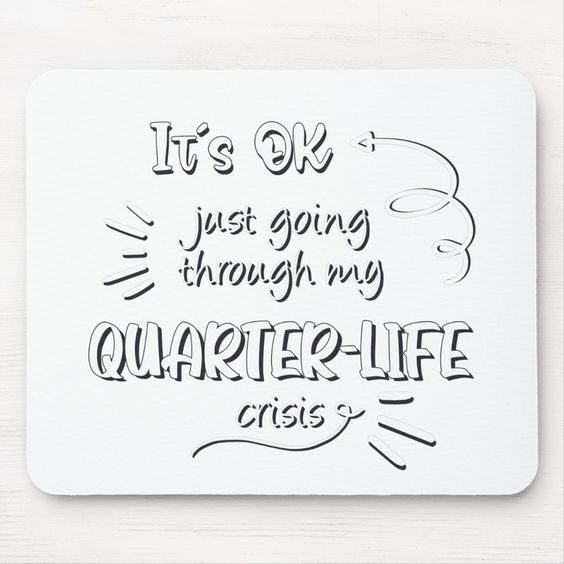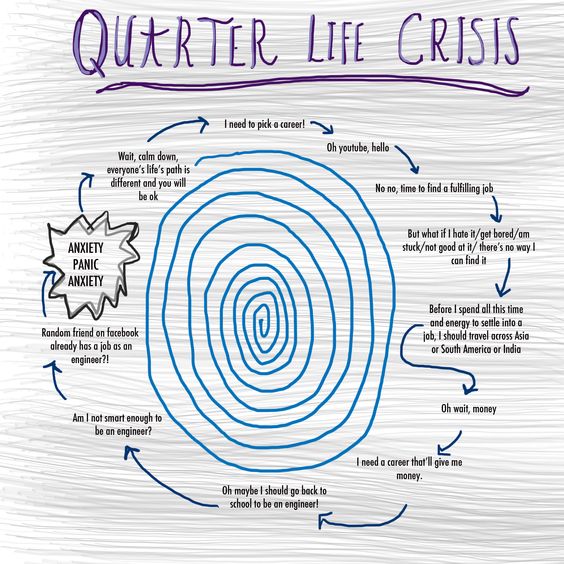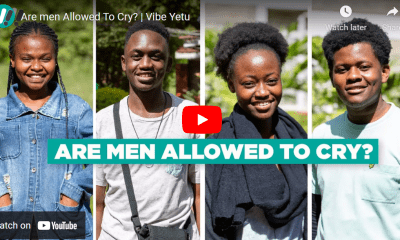Adulting 101
THE STRUGGLE OF THE 21ST CENTURY
Published
2 years agoon

Today, Human rights are no longer an abstract idea. People know what they are and why it’s important to respect them. Like everything, however, they are subjective in that their application is dependent on who is the recipient and who is the giver. In case you’re tempted to think of this as a fallacy, focus on the past. After all, without it, we cannot see where we’re going.
The world constantly faces various social phenomena and it is the job of the powerful and elite to alleviate them. They never do, so the minority has to fight for what is rightfully theirs. During the 18th and 19th centuries, Africans fought for their freedom against any man, white or otherwise who kept them as slaves. In the 21st century, the fight did not stop as their oppressors turned to racism. They openly acted in ways that made them feel less than. That is the hierarchy that is human beings, they are at the bottom of the food chain because of the color of their skin. While this fight is yet to come to an end, and we shall certainly revisit it, the 21st century has given rise to another; sexuality.

The one thing that seems to bring people together regardless of skin color is hate. This is why sexuality is an issue that transcends race. We have come together to find a reason to project our bias, prejudices, and fears on individuals with a sexual identity that doesn’t conform to normal standards. That a man can be in love with another, want to change his body because he identifies as a woman, or even that a woman can do the same, is shameful and scornful. Many use the Bible to defend their actions and opinions. That God Almighty created man and woman. Not man and man or woman and woman. To this, I ask, what of the individual with both sexual organs? Who created him or her? Is it so bad that the choices placed before them are explored? In ‘What it Means to be a Woman’, I spoke about why we give labels to people. I’ll pause and give you a minute to read… OK. Now that you’re all caught up, the hatred that I spoke about comes from not being able to label one another.
Edwin Chiloba, a fashion designer and LGBTQ member, and activist’s body was found dead in a metal box. That someone would go to such an extent to murder him and dispose of him in a gruesome way speaks about our state of mind. Many individuals in the community have been assaulted, received death threats, and even been murdered because of their sexual orientation and preferences. Why is it that we want to forcefully show these people that they are wrong and we are right? What is this innate drive to ‘rectify’ this wrong when so much is wrong with the world? Extreme poverty and poor health and sanitation, just off the top of my head.

I have often been asked what I would do if my son ended up gay. Every time, I give a simple answer; love. I’m not very religious and even I know that the greatest commandment in the Bible is love. God in his might, knows and sees all our actions but cannot change them. If he loves that lesbian, gay, bisexual, transgender, and queer individual, who am I to shun my child? To show him that my love is conditional and dependent on his being what I want? I would be a failure.
At the risk that I am just running my mouth, I will end with this. Laws call for equality and non-discrimination the opposite of which is oppressive and backward thinking. Should we fail to learn from history, the oppressed will revolt and history will repeat itself. This is a call for humanity. All lives matter.
You may like


Singer Vallerie Muthoni Releases New Collab With Lil Maina And Kahvinya


Sean Paul And Top Kenyan Talents Set For Epic Concert


Celebrated Author Joan Thatiah Releases Her 10th Book: A Powerful Tribute To Nairobi Men’s Voices


“Zoza”: A Story of Loyalty, Betrayal, and Redemption


Jamaican Dancehall Artist Sean Paul To Perform In Kenya This December


Spotify Has Quietly Hiked Prices in Kenya
Adulting 101
Emoji Users May Be More Emotionally Intelligent, Study Finds
Published
7 months agoon
December 15, 2024
Research reveals that individuals who frequently use emojis in their text conversations with friends and family tend to have a higher level of emotional intelligence.

These expressive icons may be more than just playful additions to messages—they can reflect a deeper connection with one’s feelings.
The study, conducted in the U.S., surveyed 320 participants about their backgrounds and messaging habits. Findings indicated that those confident in using emojis demonstrated a strong capacity for understanding and managing emotions. Interestingly, while women were more likely to use emojis, individuals who identified as anxious or private were less comfortable incorporating them into their communication.
Dr. Simon Dubé, a psychologist from the Kinsey Institute at Indiana University, emphasized the significance of these digital tools in modern communication. “The way we interact during virtual conversations reveals more about ourselves than we might think,” he explained. “Emojis are not just smiley faces or heart icons—they are tools for conveying meaning and enhancing communication.”
According to Dr. Dubé, emojis play a vital role in bridging the gap created by the lack of non-verbal cues in virtual exchanges. “They meet the need for non-verbal support, helping to reduce uncertainty, adjust the tone, or increase the clarity of a message,” he noted.
This research highlights the evolving ways we adapt to digital communication, suggesting that emojis are more than simple decorations—they’re essential tools for emotional expression and connection in a text-driven world.

Do you feel like life’s throwing you one too many curveballs lately? Welcome to your quarter-life crisis—well, I wouldn’t call it that, more like a plot twist!

If you’re in your 20s or early 30s, chances are you’ve felt that unsettling mix of confusion, anxiety, and “What am I even doing with my life?” vibe. But hey, it’s not as grim as it seems. This phase, though overwhelming, is more of a growth spurt for your mind and soul.
Here’s How to Navigate this Rollercoaster with Style
1. Embrace the Chaos, Don’t Fight It
First off, let’s normalize the chaos. Life’s not a straight path, and the sooner you accept the zig-zags, the smoother your ride will be. Remember, everyone’s story is different, so don’t compare your journey to someone else’s Instagram highlight reel.
This period of uncertainty? It’s just the universe’s way of nudging you towards something bigger and better.
2. Reflect and Redirect
Feeling lost? That’s your cue to pause and reflect. Ask yourself the deep questions: What do I really want? What makes me happy? It’s okay if you don’t have all the answers right away.
Start small—maybe it’s time to pivot in your career, explore a new hobby, or even take a solo trip to clear your mind.
The goal is to redirect your energy towards what genuinely matters to you.
3. Surround Yourself with Positivity

Your vibe attracts your tribe, so keep it positive. Hang out with people who uplift you, not those who drain your energy. And don’t forget to celebrate the small wins—whether it’s finally nailing that work project or just getting out of bed when you didn’t feel like it. Positivity breeds more positivity, and that’s what you need right now.
4. Trust the Process
Trust me, everything you’re going through is preparing you for something amazing. You might not see it now, but hindsight’s 20/20, right? So, trust the process and keep moving forward, even if it’s just one baby step at a time. Your plot twist? It’s leading to a grand finale that’ll be worth the wait.
A quarter-life crisis isn’t the end of the world; it’s just a chapter in your story. Embrace the uncertainties, learn from them, and use this time to craft a life that’s true to who you are. After all, you’re the author of your own story and this plot twist? It’s just the beginning of something epic.

Adulting 101
Career Hopping: The Emotional Cost of Constant Reinvention
Published
11 months agoon
August 14, 2024
Remember the days when people would stick to one job for life? Yeah, that’s a distant memory for most of us. These days, switching careers every few years seems to be the norm, especially among millennials and Gen Z. It’s exciting, keeps things fresh, and opens up new opportunities. But beneath the surface, career hopping can take an emotional toll that’s often overlooked.
So, what’s the real cost of constantly reinventing ourselves in the professional world. Let’s face it—career hopping is both thrilling and terrifying. On one hand, it’s all about exploring new opportunities, challenging yourself, and refusing to settle for anything less than what you deserve. On the other hand, it’s a rollercoaster of uncertainty, where each leap into the unknown comes with its own set of risks and emotional challenges.
One of the biggest pressures driving career hopping is the fear of missing out (FOMO). We’re bombarded with success stories on social media—people landing dream jobs, starting businesses, and seemingly living their best lives. It’s hard not to compare yourself and wonder if you’re falling behind. This can push us to jump from one job to another, always in search of the next big thing, but never truly settling into a role.
But here’s the thing: constantly changing jobs can be exhausting. Each new position comes with a learning curve—new skills to master, new colleagues to understand, and a new work culture to adapt to. It’s a lot to take on, and the stress can quickly add up. The excitement of a fresh start can be overshadowed by the anxiety of having to prove yourself all over again.Moreover, there’s the emotional impact of leaving behind teams and projects that you’ve invested in. It’s not just about the work; it’s about the relationships you build along the way. Saying goodbye to colleagues who’ve become friends can be tough, and starting over in a new environment can feel lonely at times.So, how can we navigate the ups and downs of career hopping without losing ourselves in the process? Here are some tips:
– Reflect on Your Goals: Before making a move, take some time to reflect on your long-term career goals. What do you really want to achieve? Will this new role bring you closer to that goal, or are you just chasing the next shiny thing?
– Embrace Lifelong Learning: Instead of hopping from one job to another, consider ways to grow within your current role. Lifelong learning—whether through courses, certifications, or new projects—can help you stay challenged and fulfilled without the need to constantly change jobs.
– Build a Support System: Career hopping can be emotionally draining, so it’s important to have a support system in place. Whether it’s friends, family, or mentors, having people to talk to about your experiences can make a huge difference.
– Prioritize Mental Health: Don’t forget to take care of your mental health. The stress of career changes can take a toll, so make sure you’re practicing self-care, whether that’s through meditation, exercise, or simply taking time to relax.In the end, career hopping isn’t inherently good or bad—it’s about how you approach it.
By being mindful of the emotional impact and making decisions that align with your long-term goals, you can enjoy the benefits of career hopping without burning out. After all, the journey is just as important as the destination.

Meghan Markle Delays Netflix Series Premiere Due To LA Wildfires

Satire Meets Culture On New Comedy Series ‘A Very Kenyan Sketch Show’

Netflix Set To Debut A Gripping Kenyan Drama Series ‘Mo-Faya’
Trending

 Entertainment2 years ago
Entertainment2 years agoKenyan Movie Disconnect: The Wedding Planner Is Now Streaming On Netflix

 A Chat With4 years ago
A Chat With4 years agoA MOMENT WITH SHARON WENDO, FOUNDER OF EPICA JEWELLERY

 A Chat With3 years ago
A Chat With3 years agoFind out why ‘mutura is not a street food’ as Wanjira Puts it!

 A Chat With3 years ago
A Chat With3 years agoAre men allowed to cry?

 A Chat With3 years ago
A Chat With3 years agoA chat with one of the biggest female Djs right now, Dj Redbone

 A Chat With3 years ago
A Chat With3 years agoKenyans make the best music in the world, Ayrosh

 A Chat With3 years ago
A Chat With3 years agoA chat with Atieno: A young radio personnel doing her thing behind the mics

 A Chat With2 years ago
A Chat With2 years agoIMA: A Tale of Music, Love & Law | The Vibe Chat




























